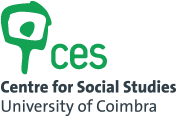E-learning Course
Human rights practices: legalisation and mobilisation (4th edition)
October 8, 2018 to January 7, 2019
About
Over the last decades, human rights have been holding a prominent position in the legal, social and human sciences. In the fields of sociology, anthropology, and political science, the themes of constitution, legalisation, mobilisation and implementation of norms and institutions related to human rights have been the object of several theoretical and empirical studies. The processes of the legalisation of human rights, as well as the limits and possibilities of this legalisation for the concrete, and not only abstract, recognition of human rights subjects, are one of the main subjects of these studies. In addition to the processes and struggles surrounding the legalisation and implementation of human rights norms, the social and legal-political mobilisation of human rights, the way individuals, social groups, nations and states appropriate human rights discourses, redefine human rights, challenge human rights, and participate in the social and legal-political construction of the meaning of human rights (what are human rights?) and the recognition of concrete subjects of human rights (who are the subjects of human rights?) are increasingly prominent issues in sociological, anthropological and political studies of human rights.
This course focuses on the themes of legalisation and the mobilisation of human rights, from interdisciplinary perspectives that include theoretical and methodological tools of sociology, political science and anthropology. Leaving the strictly legal terrain, which has dominated the study of human rights, and overcoming the legalistic definition of human rights, different theoretical perspectives and case studies on the legalisation and mobilisation of human rights will be introduced.
Coordinator - Cecília MacDowell Santos is a researcher at the Centre for Social Studies of the University of Coimbra and professor at the Department of Sociology, University of São Francisco (USF), California, USA
Throughout the Course, we will try to answer the following questions, among others that may be formulated:
- What is the importance of legalising and mobilising human rights?
- How should the processes of legalisation and mobilisation of human rights be addressed? What are the main characteristics, similarities and differences between normative, institutional, historical, discursive and human rights practices?
- From the discursive point of view and the dynamics of power relations, is there any difference between legalisation and mobilisation of human rights? Doesn't the entire legalisation process also involve a mobilisation of human rights? Why is it important to distinguish between legalisation and mobilisation of human rights?
- What actors, factors, spaces, scales and processes should be examined in studies on legalisation and mobilisation of human rights?
- What are the differences, specificities and relationships between social, legal and political mobilisation of human rights?
- Where does the design of a given network for the mobilisation of human rights begin and end?
- What is the most appropriate terminology for identifying "scales" of human rights practices, and the relationship between such scales: "local, national, regional and global"; "Local, national and international"; "Between the global and the local"; "Transnational"; "Translocal"? Or is it that the notion of "scale" does not serve to understand human rights practices?
Target Audience
The course is aimed at all professionals from Portuguese-speaking countries who work in this area, in particular, those working in the area of justice (judicial magistrates and prosecutors, lawyers, court officials, police officers, technicians from judicial and para-judicial institutions), NGO professionals, journalists and students.
Training methodology
The themes will be approached, according to the e-UNIFOJ training methodology, providing texts, scientific articles, slides and other training materials and, at all times, a Discussion Forum through which participants can exchange reflections and/or queries. The direct interaction with the trainer will be done through the chat tool to be scheduled at the beginning of the Course.
For each module, a study guide will be made available, in which the essential questions on the subject will be addressed, in order to guide the study and critical reflection on the study elements. A set of bibliography that will allow the development of knowledge of the training topics will also available at "further"
General information
Course start date - October 7, 2018
End date - January 7, 2018
Registration deadline - July 18 to October 4
Duration - 56 horas
Fee - € 150,00
The training will be held with a minimum of 12 and a maximum of 30 participants.

